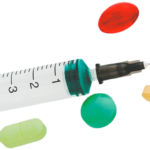SAN DIEGO—The Accelerating Medicines Partnership (AMP) is a public-private collaboration involving the National Institutes of Health (NIH), the U.S. Food & Drug Administration (FDA), multiple biopharmaceutical and life science companies, and nonprofit organizations, all joined together with the goal of transforming diagnosis and treatments for a multitude of diseases. One such condition that has been…







